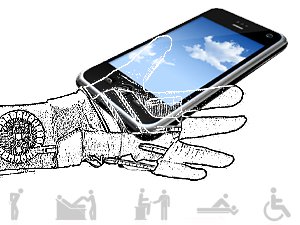 click for web site |
Transforming Homebound Healthcare by Increasing Patient MotivationTherapists drive 5 billion miles annually to treat 12 million homebound patients, yet 28% of disabled patients return to the hospital due to lack of follow-up. Remote patient monitoring (RPM) technology is prohibitively expensive, resulting in a population of digital outcasts who must create their own incentive to self-monitor improvement. The next generation of RPM is a patient-centric network of affordable mobile apps that utilize patients’ sense of touch. These connect to wireless exercise devices embedded with sensors that measure pressure, sustainable force and release. Benefits include increased patient contact, greater adherence to therapy and more accurate progress monitoring. by: Kel Smith | Aug 27, 2010
|
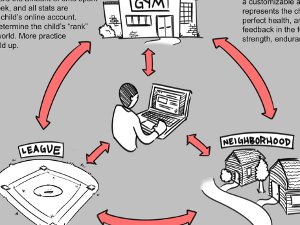 click for full image |
Inter Connected SportsImagine a system of gyms (with stat-tracking equipment and facilities), sport leagues (with tracking and recording), and social networking (based around health and exercise) that could encourage kids to exercise more and eat healthier though virtual and physical incentives. With the help of friendly peer pressure, accountability, online gaming, and rewards, we could renew the interest in sports that has fallen wayside to video games and online activity. Each child gets an online account, which is advanced through physical activity. The only way to level up is to go out and play! by: Timothy Hicks | Aug 10, 2010
|
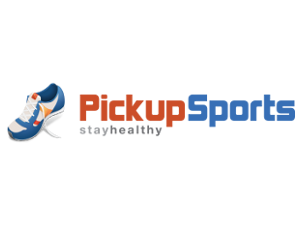 |
Pickup Sports AppPickup-sports is an innovative intervention because it connects, engages and excites people to become more active. It allows anyone, anywhere and at any time to find sport games with an activity partner for free. It is a creative idea that challenges our beliefs and perspective about social interaction and provides a platform for people to build new bonds and renew old ones. Thus, transforming our minds and bodies by enhancing our physical, mental, and social well being. Using mobile technology, Pickup-sports is not only cost-effective, but attainable within the next year! by: Peter Ma | Aug 31, 2010
|
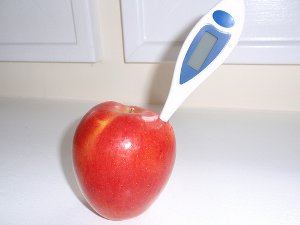 |
Nutrient ThermometerWhether we're at a restaurant or cooking at home, we can only infer the nutritional value of the food we eat. Is what we're eating healthy? Will it make us sick? We can only answer in terms of nutrition labels, if available, and they may not accurately reflect the properties of our food after cooking. I propose the design of a thermometer-like device able to assess the nutritional value of food and detect bacterial and chemical contamination to help ensure that the food on one's plate is as healthy and safe as farmers and cooks believe it to be. by: Jules Wellinghoff | Aug 7, 2010
|
 |
MSRA KillerThere are two problems with antibiotics: 1)they attack good and bad bacteria indiscriminately, and 2)bacteria are becoming resistant to them. Now imagine a kind of virus that could single out and destroy specific bacteria. Such viruses, called "bacteriophages", occur naturally. But what if we could isolate or create phages that attack only pernicious bacteria, such as MSRA? Eli Lilly began researching phage therapy in the 1940s but abandoned it because antibiotics were easier to develop. Despite this, the Soviets used phages with success during the World War II. Perhaps it is time to revisit phage therapy using modern techniques. by: Pietro Michelucci | Sep 1, 2010
|
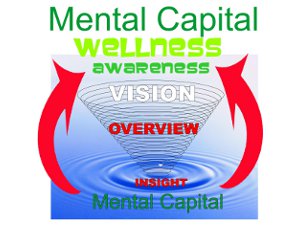 |
The creation of mental capitalWe take good health for granted until it is challenged. How we deal with lesser health is mostly up to our positive state of mind. It's our Mental Capital that pulls us through or renews our faith. My method is based on Insight, Overview and Vision to create an awareness of our positive strength, awareness of our potential as individuals or as a group to create wellness ourselves. The method works like a pebble in a pond, because vision triggers new insights and ideas. By short coaching sessions participants will create tailor-made wellness plans for themselves and others by taking action in their own hands. by: René Van Leeuwen | Sep 1, 2010
|
AED4.euRadboud University Medical Center in Nijmegen has built an emergency Augmented Reality display that allows you to look through your mobile phone's camera view and locate the nearest automatic external defibrillators (AEDs) located in a public place. It's the first independent database of AEDs in the world operated by an Academic Hospital. Data is collected by crowdsourcing and validated on-site by The Dutch Red Cross. Besides augmented reality also iPhone, Android and iPad apps are provided free. Focus is now netherlands, soon broadened to Europe and then Global. Also as an academic hospital research is part of it of course. Coverage, usage, outcome etc. by: Lucien Engelen | Aug 12, 2010
|
 click for web site |
 Thrive Portion WareThrive portion control ware's cups and plates help steer people to eat 20% less per meal. It works subtly and subconsciously to enable people to eat and drink less. Plate will tip if user places food in the red zone. Control words are on back of plate so users will see "restraint" or "will power" every time they pick one up from a dish rack or cupboard. Cup is quartered off as well, so users drink 20% less no matter what the beverage is. People can consciously consume less. Thrive Portion Ware enables people to do just that. by: Sally N. | Jul 27, 2010
|
| click for web site |
 Play It! Say It! Can gaming support mental health?PLAY IT! SAY IT! is simple - we propose to use the existing communication functionalities of video game consoles (voice chat and messaging) to provide phone and online counselling to the people who use them. The online video game community is larger than the population of Canada, and at least one 1 in 5 people playing have a mental health condition. Beyond the existing benefits of online and phone counselling, consoles offer universal access points to ensure coverage, and the opportunity to develop rapport while playing simple games to support the sharing of concerns. We value quality of life. by: Elizabeth Ure, Andrew Shaw & Adam Bass | Aug 18, 2010
|
 |
Wellth ExchangeThe system is going to treat your health like a commodity - why not do the same? Build equity. Sell shares. Trade your wellth credits on the exchange. To incentivize healthy behavior, health-related organizations (HRO's) award individuals "credit" for doing certain things - whether making a purchase decision or maintaining specific behaviors. These credits can then be used in the marketplace to purchase products, get discounts on insurance, or be donated to others. Companies might be required to "purchase" health-offset credits if they want to sell "unhealthful" things or build a new development (health impact studies for all!). by: Fisher | Aug 3, 2010
|





